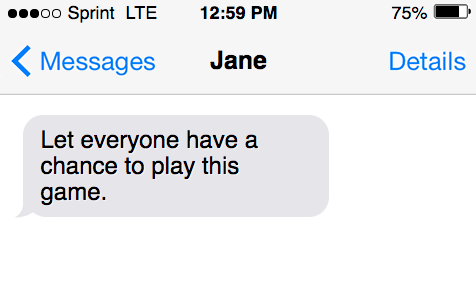In our minds, the difference between has and have are evident. As a native English speakers, we use these verb forms flawlessly. Although, when writing, there’s question about which form is correct. It can get confusing, even for the most experience writers. Irregular verbs can get awfully confusing. They take many forms depending on their tensed (present plural tense, present progressive tense, simple past tense, past participle, and more).
Let’s learn the difference between has vs. have in this short worksheet…
The difference between “has” and “have”
The words ‘has’ and ‘have’ are both different forms of the verb ‘to have’. There is a tendency among people to get confused between the meanings of the two words. Most people find it challenging to decide which word to use in a particular context.
Both words are indicative of possession (the verb form). The meaning of ‘to have’ is to possess, own, contain, or hold for use. Both have and has are used in the present tense. (Past tense is had).

Let’s look at the differences between ‘has’ and ‘have’.
- Both the words has and have mean the same. The meaning is possession or holding something.
- ‘Has’ is used with pronouns like he, she, and it. ‘Have’ is used with the pronouns ‘I’, ‘We’, and ‘They’.
Examples: I have a green T-shirt. He has a green T-shirt.
- The word ‘has’ should be used in the third person. The use of ‘have’ is more flexible. It can be used in first person (‘I’), second person (‘you’), and third person (‘they’).
- When we look at the type of verb, ‘has’ is used an auxiliary verb whereas ‘have’ is used as a lexical verb.
Since both words are in the present tense and often refer to the same things, they can get confusing. Although, using “has” in replace of “have” in the wrong contexts can lead to grammatical errors and incorrectly formed sentences.
| Word | Definition |
| Have (verb) /hav,həv,(ə)v/ | 3rd person present: has. possess, own, or hold. |
| Has (verb) | 3rd person present: has |
When to use “has”
Has is used as the third person singular. It is used with pronouns, ‘he,’ ‘she,’ and ‘it.’ Apart from its use with ‘he,’ ‘she,’ and ‘it’ the word ‘has’ can be used with a person’s name. The key rule is that ‘has’ is used only with third-person singular pronouns.
Regarding the third person plural, you cannot use ‘has’ and should use ‘have.’
Tip: A conjugation is the creation of derived forms of a verb from its principal parts by inflection. The verb form of the word “break” can get conjugated to “break, breaks, broke, broken.” “Has” and “have” are examples of a conjugation.
Sentence examples
- He has a mild fever.
- She has no time to exercise.
- Clark has an excuse ready always.
- I like the new laptop, it has a large screen.
- Do you know if the team has appointed a coach yet?
When to use “have”
The verb ‘have’ is used with the first and second person singular and plural. It is also used with the third person plural. To put it in simple terms, ‘have’ is used with the pronouns ‘I’, ‘You’, ‘We’, and ‘They’.
Sentence examples
- I have made up my mind to take up Mathematics as a major.
- You have to decide what your next course of action will be.
- They have no idea what to do next.
- The sales and marketing departments have the most expenses.
- I have every intention of attending the concert this weekend.
Refer to the chart below for more.
| Word | Example |
| Have (present tense) | I have a cat. |
| Has (present tense) | She has a dog. |
| Had (past tense) | He had to go home. |
Is it “everyone has” or “everyone have”?
The rule here is straightforward. ‘Everyone’ is considered singular. Hence, has is the right word to use.
- Everyone has an opinion.
- Everyone has to be present at 8 am.
- Everyone has the right to share their views.
In the above example, the word everyone needs to be used with ‘has’ and the incorrect form ‘have.’
However, there is an exception. Have can be used with the word everyone when it is in an infinitive and is usually in the form of a question.
- Does everyone have a pen?
- Can everyone have an opportunity to speak?
- Let everyone have a chance to play this game.
Here’s a helpful chart to understand auxiliary verbs and irregular verbs:
| Form | Example |
| Irregular verb | Dream = dreamed = dreamt |
| Auxiliary verbs (helping verbs) | Am, is, are, was/were, being, been |
Is it “has been” or “have been”?
Both has been and have been are correct when used in their appropriate contextual manners. Both ‘has been’ and ‘have been’ are present perfect continuous forms of the verb ‘to have’.
Either of the two can get used depending on the pronoun that accompanies the word.

In the first person, have been is the right choice to use.
It can be used for singular and as well as plural forms.
- I have been going to college.
- You have been going to college.
- We have been going to college.
In the second person, have been is used with the word you.
For example: You have been going to college
In the third person, only the singular personal pronouns ‘he’, ‘she’, and ‘it’ can be used with ‘has been’.
- He has been going to college.
- She has been going to college.
- It has been three days since he went to college.
Is it “has anyone” or “have anyone”?
Both ‘has anyone’ and ‘have anyone’ are correct, but it depends on how it is used. You can use ‘have anyone’ when the subject is defined in the sentence. ‘Has anyone’ can be used when the word ‘anyone’ is the subject of the sentence.
Anyone is a singular word form. Meaning, it is correct to use both has and have depending on the context.
Let’s look at some examples to understand this better.
- Do you have anyone in mind for this job?
- Martha doesn’t have anyone to talk to.
- You don’t have anyone with you, right?
- Has anyone seen my bag?
- Has anyone updated the schedule?
Contractions that use has or have
Contractions are commonly used in the English language. For example, is not is contracted as isn’t.
Let’s look at the contractions for has or have.

The contractions can be positive or negative. The negative contractions are those that use ‘not.’
The contractions for have are:
- I have – I’ve
- You have – You’ve
- We have – We’ve
- They have – They’ve
- Have not – Haven’t
The contractions for has presents an interesting case. In American English, has is not contracted with he, she, and it when it is the main verb getting used.
For example, “HE has” when contracted becomes he’s.
The problem here is the contraction is he+is=he’s. So when you write he’s it would be dramatically incorrect. Learn more about apostrophes.
Fun fact: In British English, ‘he has’ is contracted to ‘he’s.’
The negative contraction of has and not can get safely contracted to the word hasn’t.

Example sentences:
- I haven’t got time now.
- She hasn’t got a chance to win.
- Rocky and his brothers are on a trip. They’ve gone for 10 days.
How to remember which form to use?
Let’s look at some easy tips for using the right form of has and have in sentences.
‘Have’ is to be used when you use the pronouns ‘I’, ‘You, ‘We’, and ‘They’ are being used in sentences.
‘Has’ is to be used when the pronouns ‘He’, ‘She’, and ‘It’ are used.
Sources
- Has vs. Have: What’s the Difference?
- Difference between Has and Have
- “Have” vs. “Has”: When To Use Each One?
- Difference between Have Been and Has Been
Inside this article
Fact checked:
Content is rigorously reviewed by a team of qualified and experienced fact checkers. Fact checkers review articles for factual accuracy, relevance, and timeliness. Learn more.
Core lessons
Glossary
- Abstract Noun
- Accusative Case
- Anecdote
- Antonym
- Active Sentence
- Adverb
- Adjective
- Allegory
- Alliteration
- Adjective Clause
- Adjective Phrase
- Ampersand
- Anastrophe
- Adverbial Clause
- Appositive Phrase
- Clause
- Compound Adjective
- Complex Sentence
- Compound Words
- Compound Predicate
- Common Noun
- Comparative Adjective
- Comparative and Superlative
- Compound Noun
- Compound Subject
- Compound Sentence
- Copular Verb
- Collective Noun
- Colloquialism
- Conciseness
- Consonance
- Conditional
- Concrete Noun
- Conjunction
- Conjugation
- Conditional Sentence
- Comma Splice
- Correlative Conjunction
- Coordinating Conjunction
- Coordinate Adjective
- Cumulative Adjective
- Dative Case
- Determiner
- Declarative Sentence
- Declarative Statement
- Direct Object Pronoun
- Direct Object
- Diction
- Diphthong
- Dangling Modifier
- Demonstrative Pronoun
- Demonstrative Adjective
- Direct Characterization
- Definite Article
- Doublespeak
- False Dilemma Fallacy
- Future Perfect Progressive
- Future Simple
- Future Perfect Continuous
- Future Perfect
- First Conditional
- Irregular Adjective
- Irregular Verb
- Imperative Sentence
- Indefinite Article
- Intransitive Verb
- Introductory Phrase
- Indefinite Pronoun
- Indirect Characterization
- Interrogative Sentence
- Intensive Pronoun
- Inanimate Object
- Indefinite Tense
- Infinitive Phrase
- Interjection
- Intensifier
- Infinitive
- Indicative Mood
- Participle
- Parallelism
- Prepositional Phrase
- Past Simple Tense
- Past Continuous Tense
- Past Perfect Tense
- Past Progressive Tense
- Present Simple Tense
- Present Perfect Tense
- Personal Pronoun
- Personification
- Persuasive Writing
- Parallel Structure
- Phrasal Verb
- Predicate Adjective
- Predicate Nominative
- Phonetic Language
- Plural Noun
- Punctuation
- Punctuation Marks
- Preposition
- Preposition of Place
- Parts of Speech
- Possessive Adjective
- Possessive Determiner
- Possessive Case
- Possessive Noun
- Proper Adjective
- Proper Noun
- Present Participle
- Prefix
- Predicate



